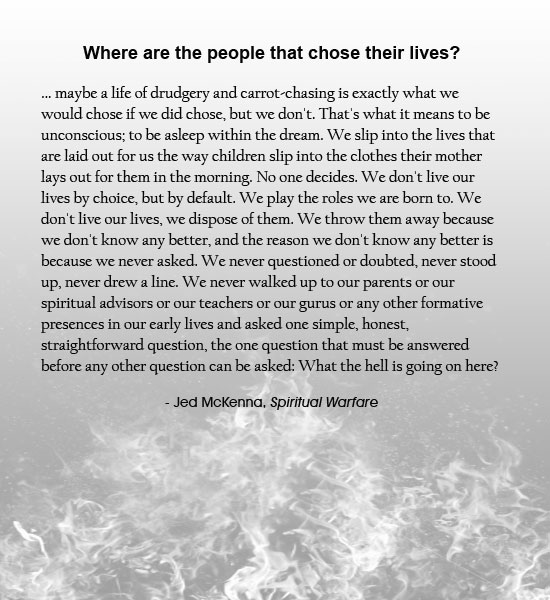It is interesting to observe that whenever we love someone, we love the “body” more than the inherent qualities of a person. You may beg to differ but consider what happens when the person whom we love leaves us. If we are truly appreciating the qualities found in that person we know for sure that there is no possibility of owning that someone since those qualities are not found in the body except the mind and as such is irrelevant to hold on to him or her physically.
On the same token, when we dislike a person, we wish for that person to get out from our sight. We are meaning to say that we don’t like to see the “body” around. But are we not aware that regardless of whether the person is around or not, we have now only to deal with what comes to the mind – the upset that we took on. Seemingly it may looks like our upset increases each time we see the person but really, he or she is merely a trigger of what is already in us – in other words our memory is the thing that haunt us. We may have observed that we have carried our anger with us for awhile now whether we see that person or not. What then has it got to do with that person’s existence?
If we really want to deal with our anger, we have to stop giving attention to the “body” out there. In fact it is because of our attention towards the “body” out there that continuously feeds our upset. We are rarely aware of that due to our own ignorance. We see that it is the “body” that is making us angry.
There was an incident over lunch where a father told his daughter that their dog had acted stupidly over a certain event the other day and the child was quick enough to reiterate that it is not the dog per se which is stupid but rather a specific attitude that the dog has acquired to which was what her dad abhorred. Now that is indeed a wise observation!
Are you aware that the mind works according to where it is directed? If you direct it at the body, you will see goodness and badness in the body. If you direct it to the mind, you will see it in the mind. For instance, if your attention is given to say, a guard – your opinions about him will be as a body rather than his attitude. Yes, we normally dislike a person for their attitude, but we don’t get that the attitude has nothing to do with the body. We clump the attitude as an action of the body rather than an effect deriving from the mind. We don’t see the fact that his attitude is what we are questioning, not his role as a guard. In this way we can deal with him easier rather than seeing him as wrong. It is the same as the dog and the father scene.
Most of our unforgiveness comes from directing at the body rather than the mind of another person. Wars are fought because of bodies. Religions are separated because of bodies too – my teacher is better than your teacher. Relationships are affected because of bodies – the ownership of it. Ultimately to direct our unforgiveness at other’s mind is also a misperception – barking at the wrong tree – as the house on fire at that moment is our mind, not elsewhere. Unforgiving state has to be addressed as it is without targetting to anyone else including ourselves.
The way you experience and feel about yourself is not determined by those around you. It is determined by how you look at and think about them. If you look at a situation as wrong, it has to follow naturally its own path of discomfort, not because there is some kind of a higher force that you are subjugated to for punishment but rather a natural effect of what arises from misperception. Right perception, right effect. How would you know whether there is a misperception? When you are in pain.



